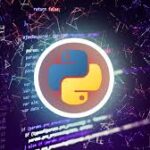“Comprehensive Strategies for Securing Web Traffic”
SUMMARY
The 300-725 exam is a key part of the Cisco Certified Specialist in Security Implementation certification track. It focuses on the design, configuration, and management of Cisco Web Security solutions, particularly Cisco Secure Web Appliance and Cisco Umbrella. By completing this course, participants will gain the skills to enhance their organization’s web security posture.
Key Learning Objectives
- Cisco Web Security Architecture: Learn the architecture and deployment models of Cisco Web Security solutions for both cloud and on-premises environments. Participants will also acquire skills to configure and manage Cisco Secure Web Appliance and Cisco Umbrella for securing web traffic.
- Web Security Policies: Gain hands-on experience in configuring web security policies to filter web content and enforce acceptable use policies. The course also covers customizing filtering rules based on user roles, departments, and organizational needs.
- Threat Detection and Mitigation: Learn to identify web-based threats like malware, phishing, and ransomware. Participants will understand how to configure Cisco Web Security tools to detect and mitigate these threats through advanced threat intelligence and content filtering.
- Data Loss Prevention (DLP): Learn DLP principles and how to implement strategies within Cisco Web Security to monitor and protect sensitive data, ensuring compliance with regulations.
- SSL Decryption: Understand SSL decryption’s importance in inspecting encrypted traffic for potential threats and learn how to configure decryption policies while balancing privacy and security concerns.
- Monitoring and Reporting: Develop skills to track web traffic and security incidents using Cisco Web Security’s reporting and monitoring tools. Participants will also learn how to generate and analyze reports on user activity and threat detection.
- Troubleshooting and Maintenance: Learn troubleshooting techniques for Cisco Web Security solutions, as well as best practices for maintaining the health and performance of these systems.
- Best Practices for Web Security: Explore industry best practices for securing web traffic, including user training, incident response planning, and continuous improvement.
Target Audience
The course is aimed at IT professionals such as:
- Network Security Engineers and IT Administrators responsible for implementing and managing web security.
- Security Analysts focused on responding to web-based security incidents.
- Compliance Officers ensuring organizational data protection compliance.
- IT Managers looking to expand their web security knowledge.
Prerequisites
Participants should have basic knowledge of networking concepts, web protocols (HTTP/HTTPS), and general security principles. Familiarity with Cisco networking and security technologies is beneficial but not mandatory.
Course Format
The course combines lectures, hands-on labs, and practical exercises to reinforce learning. Real-world scenarios and labs help participants apply the concepts and prepare for both the exam and real-world situations.
Description
The 300-725 exam is a vital component of the Cisco Certified Specialist in Security Implementation certification track. Throughout this course, participants will learn about the architecture, configuration, and management of Cisco Web Security solutions, including Cisco Secure Web Appliance and Cisco Umbrella. By the end of the course, participants will be equipped to enhance their organization’s web security posture significantly.
Key Learning Objectives
- Understanding Cisco Web Security Architecture:
- Explore the architecture and components of Cisco Web Security solutions, including deployment models for cloud and on-premises environments.
- Learn how to configure and manage Cisco Secure Web Appliance and Cisco Umbrella to secure web traffic.
- Implementing Web Security Policies:
- Gain practical experience in configuring web security policies to filter web content and enforce acceptable use policies.
- Understand how to customize filtering rules based on user roles, departments, and organizational needs.
- Threat Detection and Mitigation:
- Identify common web-based threats, including malware, phishing, and ransomware.
- Configure Cisco Web Security solutions to detect and mitigate these threats using advanced threat intelligence and content filtering techniques.
- Data Loss Prevention (DLP):
- Learn the principles of data loss prevention and how to implement effective DLP strategies within Cisco Web Security.
- Explore methods for monitoring and protecting sensitive information to ensure compliance with industry regulations.
- SSL Decryption:
- Understand the role of SSL decryption in web security and its importance in inspecting encrypted traffic for potential threats.
- Learn to configure SSL decryption policies while balancing privacy and security concerns.
- Monitoring and Reporting:
- Develop skills in using Cisco Web Security’s reporting and monitoring tools to track web traffic and security incidents.
- Generate and analyze reports on user activity, threat detection, and policy enforcement effectiveness.
- Troubleshooting and Maintenance:
- Gain troubleshooting skills specific to Cisco Web Security to identify and resolve common deployment and operational issues.
- Understand best practices for maintaining the performance and health of Cisco Web Security solutions.
- Best Practices for Web Security:
- Explore industry best practices for securing web traffic, including user training, incident response planning, and continuous improvement strategies.
- Develop a comprehensive web security strategy that aligns with organizational goals and compliance requirements.
Target Audience
This course is suitable for a diverse range of IT professionals, including:
- Network Security Engineers: Responsible for implementing and managing web security solutions.
- IT Administrators: Overseeing web traffic and seeking to enhance security measures.
- Security Analysts: Focused on monitoring and responding to web-based security incidents.
- Compliance Officers: Ensuring that organizational practices comply with relevant data protection regulations.
- IT Managers and Professionals: Looking to broaden their understanding of web security solutions.
Prerequisites
To maximize the learning experience, it is recommended that participants have:
- Basic knowledge of networking concepts, including web protocols such as HTTP and HTTPS.
- Familiarity with general security principles and practices.
- Experience with Cisco networking and security technologies is beneficial but not mandatory.
Course Format
The Securing the Web with Cisco Web Security course combines lectures, hands-on labs, and practical exercises. Participants will engage in real-world scenarios that reinforce learning and allow them to apply concepts in a controlled environment. The hands-on labs will provide practical experience in configuring and managing Cisco Web Security solutions, ensuring participants are well-prepared for the exam and real-world applications.
Certification and Exam Information
Upon successful completion of the course, participants will be prepared to take the 300-725 exam, a crucial step toward earning the Cisco Certified Specialist in Security Implementation certification. The exam consists of multiple-choice questions that assess understanding of web security concepts and the ability to apply that knowledge in various scenarios.




![Certified Ethical Hacker (CEHv12) Practice Exams [2024 NEW]](https://couponcodenews.com/wp-content/uploads/2024/09/JJAAJAJAJ.jpeg)





